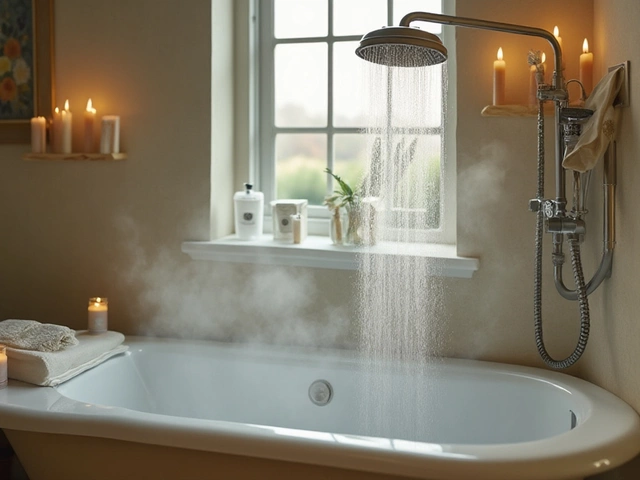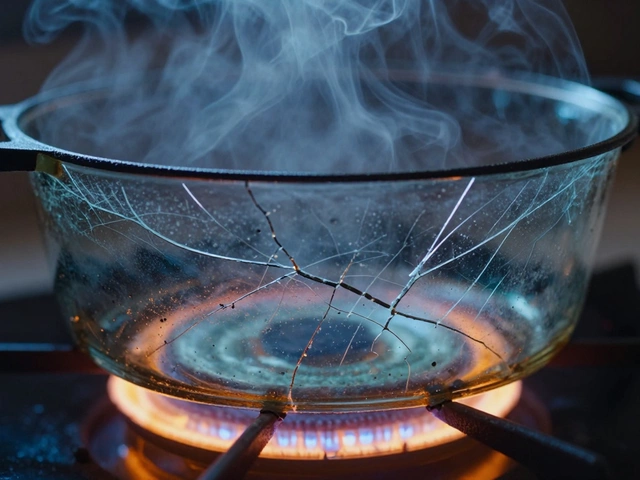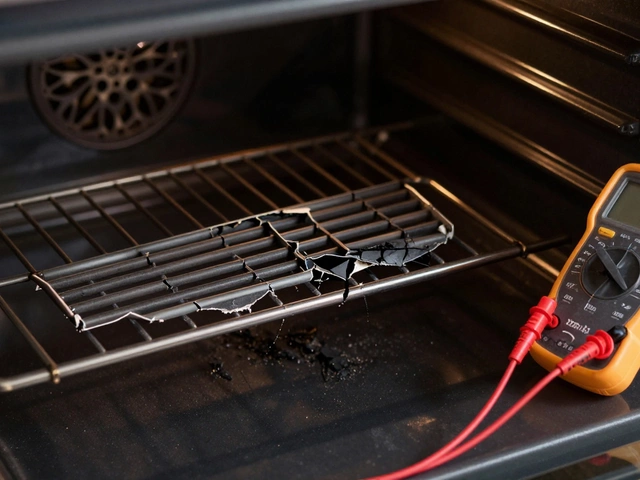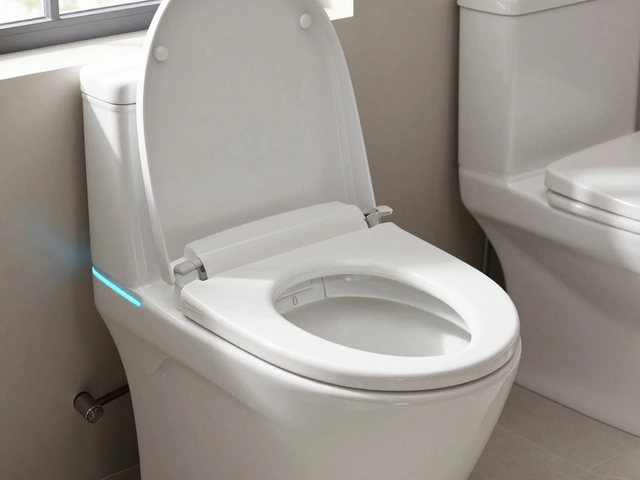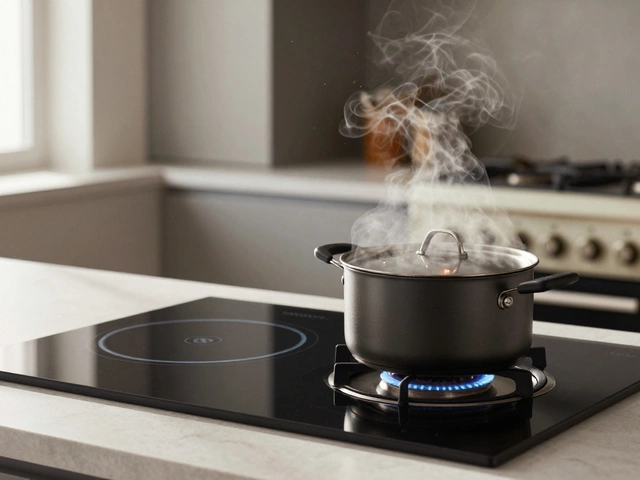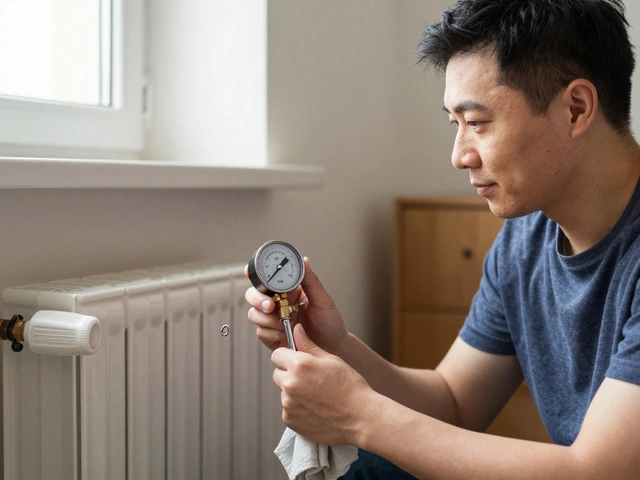Boilers are the heart of home heating systems, especially during those chilly months. But what happens when they start acting up? Recognizing the early signs of trouble can save you from a full system breakdown and a frosty home. In this article, we'll walk you through practical ways to diagnose your boiler issues.
Taking a methodical approach to identifying the problem is key. It could be as simple as a pressure drop or something more complex like a faulty valve. By understanding these signals, you can make informed decisions about whether you can fix the issue yourself or need to call in an expert. Let’s equip you with the know-how to tackle boiler troubles efficiently.
- Common Signs of Boiler Trouble
- Simple Inspection Steps
- When to Call a Professional
- Preventive Maintenance Tips
Common Signs of Boiler Trouble
Keeping an eye on your boiler’s behavior is essential for maintaining your home’s warmth during colder months. One of the most noticeable signs of boiler trouble is strange noises. If your boiler sounds like it's hosting a rock concert, it might be trapped air, mineral deposits in the heat exchanger, or low water pressure causing the banging, clunking, or whistling sounds. Not only are these noises unsettling, but they can also hint at an underlying issue that needs attention sooner rather than later. Another sign to watch out for is inconsistent heating; perhaps your radiators are cold despite the thermostat reading a toasty number, indicating that your boiler isn't efficiently sending heat throughout the home.
Leaks are another prominent and serious sign of trouble. Any visible puddles or water dripping around the boiler unit suggest a problem with internal components, such as seals or corrosion in the pipes, and should not be ignored. Leaking boilers can lead to significant water damage and are often a precursor to a complete boiler breakdown. Also, take note of any unusual smells. While gas is odorless, a smell reminiscent of rotten eggs might be added mercaptan, indicating a gas leak which is extremely dangerous. In such a case, evacuate your home immediately and contact a professional.
If your boiler is frequently switching itself off, it could be due to problems with the thermostat, settings, or water flow. On the other hand, an increase in energy bills might be the less obvious sign that something is amiss, as a failing boiler often struggles to heat efficiently, consuming more fuel in the process. According to the Energy Saving Trust, old and faulty boilers can lead to a significant increase in energy consumption, emphasizing the importance of regular checks and efficient functionality.
Moreover, take note of the pilot light. A healthy boiler usually has a strong blue flame, but if you spot yellowing or the flame going out entirely, it's a definite indication that your boiler needs some attention. Yellow flames can suggest a carbon monoxide leak, which is potentially lethal, so it’s crucial to address this immediately. As a reference, British Gas states that regular maintenance can significantly reduce the risks of such issues occurring, making maintenance an indispensable preventive action for any homeowner. Awareness of these common signs can equip you better to act swiftly, ensuring your boiler issues are resolved before they escalate into costly repairs.

Simple Inspection Steps
Getting hands-on with your boiler repair might sound a bit intimidating, but with a set plan, you can make sure your home stays a warm haven. Let’s break down the inspection process into manageable steps. First, always make sure your safety is the primary concern. Before you start, turn off your boiler and wait until it cools down. This prevents burns and other injuries, and makes it easier to handle parts with ease.
Your first task is to check the boiler’s pressure gauge. Ideally, it should be between 1 and 2 bars when the system is cool. If you see it consistently going into the red zone, there's definitely a pressure issue that you'll need to address. Next, listen closely for any unusual noises while your boiler is running. A constant gurgling or banging could mean trapped air, mineral deposits, or more serious internal issues, which might require purging trapped air from the radiators or consulting a professional.
Moving on, take a look at the pilot light. A healthy pilot light burns blue. If it's yellow or sporadic, it could be a sign of a carbon monoxide leak, which is extremely dangerous. In such cases, you should stop the boiler and call in a pro immediately. Also, regularly check the vents and flues for blockages that might affect the boiler's performance. Sometimes, external factors like bird nests or debris can obstruct these outlets, hindering efficient combustion.
Performing an overall physical checkup is equally important. Look around the base and connections for any leaks or signs of corrosion. Even a minor drip can lead to bigger problems if not corrected quickly. It's during this step that many realize the importance of timely home maintenance, catching potential threats before they escalate. To make your inspection more thorough, you can use a mirror to check areas not easily visible. This helps in detecting any hidden troubles.
"Regular maintenance of heating appliances is crucial to ensure safe and efficient operation. Ignoring small issues can lead to energy inefficiency and expensive repairs," suggests Energywise, a leading authority in home energy solutions.
Once these steps are completed, test your boiler by switching it on, and pay attention to how it operates. Does it heat up quickly and evenly? If there are fluctuations or delays, it might be time to recalibrate the boiler problems settings or replace faulty components. Following these steps gives you a good picture of your boiler’s health and reduces unexpected breakdowns, ensuring your comfort through the cold months.

When to Call a Professional
Facing a boiler problem can be quite unnerving, especially when the comfort of your home is in jeopardy. While some minor issues can be handled with DIY fixes, there are times when calling a professional becomes not only prudent but necessary. Imagine if your boiler is making loud banging noises or not firing up at all – these are clear indicators of deeper problems that require expert intervention. A professional has the trained eye to identify issues that are not apparent to us mere mortals, ensuring that the problem is fixed correctly and safely. Additionally, many boiler warranties require that complex repairs be performed by a certified technician to remain valid.
One significant sign that it's time to bring in a professional is the absence of heat or irregular heating patterns. If your boiler struggles to maintain a set temperature, it might be facing issues with the thermostat, pressure valves, or even the burner itself. These components are intricate and should be handled by someone who has experience and knows the safety protocols involved. Moreover, constant water leakage from your boiler is another red flag. Leaks can indicate corrosion, a compromised seal, or a broken valve, each of which demands the expertise of a trained professional.
"Safety should always be the top priority when dealing with boilers," says John Ellis, a seasoned expert from Global Heating Services. "If you ever feel unsure or unsafe, turning to professionals can prevent potential hazards down the road."
The smell of gas near your boiler is an urgent cue to call for professional help immediately. Gas leaks are extremely dangerous and can lead to carbon monoxide poisoning, which is life-threatening. Professionals are equipped with the right tools to detect and repair gas leaks, ensuring the safety of you and your family. Strange noises, such as clunking or hissing, can also indicate underlying mechanical issues such as broken parts or even sediment buildup, which can reduce your boiler's efficiency and lifespan.
Another key time to ring up a professional is during the annual maintenance of your boiler system. Even when things seem to be running smoothly, regular check-ups by a qualified technician can catch wear and tear problems early, preventing costly repairs later. Proper maintenance can extend the life of your system, and it's often a requirement to maintain the manufacturer's warranty.
A boiler repair technician can provide detailed insights and advice tailored to your system's specific needs, helping you keep it in prime condition. Remember, while some tasks may seem easy enough to handle on your own, entrusting your critical heating system to a qualified professional ensures peace of mind. Given the complexity of modern boilers, professional service is a valuable investment to ensure both efficiency and safety of your home heating.

Preventive Maintenance Tips
When it comes to ensuring your boiler runs smoothly, preventive maintenance is your best friend. Regular upkeep can not only prolong the life of your heating system but also enhance its efficiency and safety. First and foremost, it's important to regularly check the pressure. Most boilers operate reliably when the pressure gauge reads between 1 and 2 bars. If you notice it dropping below this, it might indicate a leak or require a simple top-up, which can be done following the manufacturer's instructions in your boiler’s manual. Ignoring a low-pressure situation can lead to more significant problems, so nip that problem in the bud early.
Bleeding your radiators should also be a regular part of your maintenance routine. This is a simple process of releasing any trapped air within the system, and it can greatly impact the efficiency of your boiler. If your radiators are warm at the bottom but cold at the top, it’s a sign that they may need bleeding. With a radiator key or flat screwdriver, gently turn the valve on the radiator’s side. This will release the trapped air, evident by a hissing sound. Make sure to have a cloth or towel handy to catch any drips from the radiator.
Keep an eye out for any strange noises coming from your boiler. Boilers often make various sounds, from humming to whistling. While a gentle humming can be perfectly normal, banging or loud gurgling may point to underlying issues like a buildup of limescale. In fact, a boiler’s efficiency can drop by up to 5% for every 1.6mm of limescale buildup. To combat this, consider using water softeners or magnetic filters that help minimize deposits. As the saying goes, prevention is better than cure, and this rings true in heating maintenance. As Nelson Mandela wisely noted,
"Remember to celebrate milestones as you prepare for the road ahead," which is particularly relevant as regular check-ups can avert more urgent, costly repairs in the future.
Not forgetting the pilot light, if you have an older model of boiler, it’s essential to keep the area around it clean and free of dust and dirt. A yellow or irregular flame instead of the usual strong blue indicates issues with the gas supply and should be addressed immediately. Ensure the boiler’s intake and exhaust vents outside your home are clear of obstructions like leaves or snow during colder months. Blocked vents can lead to carbon monoxide buildup, which is a serious safety hazard.
For those keen on delving deeper into their system, thermostats play a crucial role too. Programmable thermostats allow you to schedule heating times efficiently. On the flip side, an aged or faulty thermostat may result in temperature fluctuations and inefficiencies, so it's worth replacing as needed. While modern technology in the boiler industry aims to simplify home heating solutions, understanding your boiler's unique quirks and following these tips ultimately guarantees you a warm, worry-free season.




